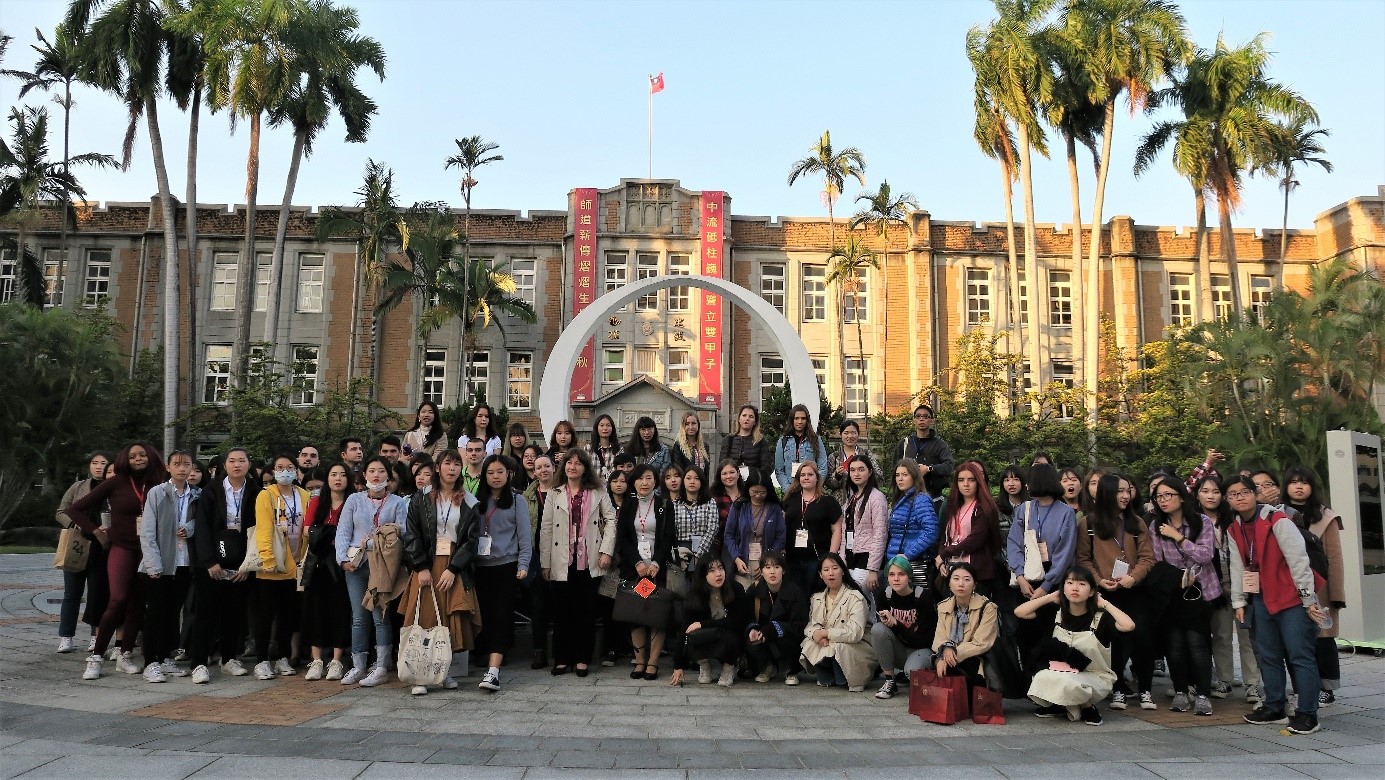Three Key Russian Universities Participate in National Taichung University of Education’s Spectacular Taiwan Culture Winter Camp, 2020

In late January, a group of Russians took part in the 2020 Spectacular Taiwan Culture Winter Camp together with participants from other countries, including the Czech Republic, Korea, Romania, and the Philippines. The seven students and two teachers were from three key Russian universities—Moscow State Pedagogical University, Moscow City University, and Saint Petersburg Electrotechnical University.
The Winter Camp was organized by National Taichung University of Education to give the participants more knowledge and understanding of Taiwanese culture, and Mandarin Chinese. It included classes on Mandarin Chinese, calligraphy, aboriginal culture, Tai Chi, and Taiwanese puppets, and excursions to a Sunny Cake factory, a Taiwan Folk Museum, and scenic spots, such as Sun-Link-Sea Forest and Nature Resort, and Miaoli City. All the participants loved the beautiful scenery of Sun Moon Lake, and Waterland.
The two Russian students from Saint Petersburg Electrotechnical University were really surprised by the Mandarin Chinese classes: the students played cards as part of their learning activities, and they studied the most basic words that would be useful for communicating with the locals, in the form of a game. And that made everything easier to remember. Other aspects of Taiwan that surprised all the participants included how freely Taiwanese people can walk down the street late in the evening with a sense of safety; how friendly and good-natured the local people are; and that many locals can speak English, if not fluently, and that they were always willing to give the international visitors a hand.
There’s been a sharp increase in the number of Mandarin Chinese learners in the past few years, in response to the Russian Federal Government decision to include Mandarin Chinese as one of the options in the Foreign Language category of the Unified National Examination and other policies, and the number is expected to keep rising. Each year the Education Division of the Taipei–Moscow Economic and Cultural Coordination Commission works with several major Russian universities implementing the Language Exchange Program, to encourage more Russian students to study Mandarin Chinese in Taiwan and experience Chinese culture firsthand.
